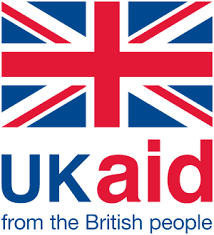Community / Land projects / Cascade processes for integrated bio-refining of agricultural waste in India and Vietnam
Cascade processes for integrated bio-refining of agricultural waste in India and Vietnam

€709675.8617
05/17 - 07/19
Completed
This project is part of
Implementing Organisations
Donors
Data Providers
General
Managing the water, energy and food requirements of a constantly-rising world population, in the context of climate change, is a key global challenge. Significant growth in proven and predicted fossil fuel reserves mean that achieving the Paris COP21 target for a 1.5 degree Celsius increase in mean global temperature relative to the pre-industrial level is at risk if we remain dependent upon these reserves. Biomass derived from agricultural and forestry residues is a low carbon feedstock for transportation fuels and organic chemicals. Integrating conversion processes so that biofuels, chemicals and energy are co-produced maximises the economic viability of waste biomass utilisation; an approach analogous to current petroleum refineries that deliver high volume/low value (fuels and commodity chemicals) and low volume/high value (fine/speciality chemicals) products in tandem. The potential for agricultural waste as a feedstock for low carbon fuels and chemicals is vast, even allowing for sustainable land management practices. In the EU alone, 16% of road transport fuel could be produced from waste by 2030 which would deliver green-house gas savings of greater than 60%. In Asia rice is the single most important crop, annually yielding >250 million tonnes of waste rice residues. Current practices of "at-site" burning of these waste residues in developing nations have serious detrimental effects on the environment and human health; improved waste management is therefore essential. To employ rice residues as sustainable feedstocks for transportation fuels and organic chemicals requires improved processes for their pre-treatment and conversion. This project proposes to develop an alternative, environmentally-benign process to utilise waste rice residues for the production of fuels and bio-derived agrochemicals, which will impact on renewable energy, climate change and environmental pollution by seeking to transform a plentiful waste resource into (1) an economically-viable, sustainable energy source for transportation fuels; and (2) a sustainable feedstock for the production of organic chemicals, while mitigating emissions of carbon dioxide and atmospheric particulates from "at-site" burning. We will exploit recently-established demonstrator plant facilities at ICT-Mumbai in India (ICTM) which offer cost-effective waste rice residue fractionation into lignin and cellulose, with a focus on bioethanol production. Our aim is to develop underpinning science to offer a wider range of high-value products from lignin, sugars and other extracted components thereby future-proofing the process to combat the fragile economics of bioethanol production. We propose an innovative and flexible conversion platform building on current expertise of the UK partners. A multidisciplinary team with expertise in plant cell wall deconstruction and simultaneous saccharification (Institute of Food Research; IFR), green extraction methods (The VN-UK Institute, University of DaNang), enzyme expression, tandem bio- and chemo-catalytic conversion technologies (Aston), bio-chemo routes to depolymerising lignin (Vietnam National University, Ho Chi Min City), process engineering and catalysis (Ha Noi University of Science & Technology) and photocatalytic water depollution (Aston and The Vietnam Academy of Science and Technology) will tackle the challenge of value-added product production while also ensuring sustainable water management practices are adopted. Enhanced research capacity in the Indian and Vietnamese institutes will be facilitated by interdisciplinary researcher training exchange visits to the partner research institutes at Aston and IFR, building a platform for sustainable agricultural waste management.
Objectives
The Global Challenges Research Fund (GCRF) supports cutting-edge research to address challenges faced by developing countries. The fund addresses the UN sustainable development goals. It aims to maximise the impact of research and innovation to improve lives and opportunity in the developing world. The fund addresses the UN sustainable development goals. It aims to maximise the impact of research and innovation to improve lives and opportunity in the developing world.


